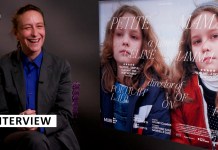An easy contender for one of the best films of the year, Celine Sciamma’s Girlhood is a vital, charming and entertaining glance into the world of four girls growing up in the outskirts of Paris.
The wonderfully talented Kuridja Toure plays Marieme, a shy, uncertain girl growing up in a household with an absent father, nearly absent mother and a very present, controlling brother. Her only goal from the outset is to go to high school. When this option is denied her, she takes the only other appealing option available- that is, to join a gang of girls lead by the charismatic, feisty Lady (Assa Sylla).
They steal clothes, get in fights and get drunk, but they do it together. These girls aren’t ‘frenemies’, they love each other. They have fun, they take the mick out of each other, and they stick by each other when things go wrong. And so Marieme becomes Vic (an abbreviation for ‘victory’), which is the first of her character transformations.

Perhaps the greatest strength of the film is that Vic is constantly evolving- she does not move from little girl to thug- she largely retains the mild nature of Marieme, and is shaped by her experiences. Her behaviour, whilst seemingly not always natural to her character, is a direct response to the situation she finds herself in. Her awkwardness and her quiet contemplation is endearing, and so familiar to anyone who has ever been a teenage girl. Celine Sciamma clearly loves her characters, and takes care to look upon them with compassion.
The only criticism of the film is that there doesn’t seem to be enough run time to truly explore the complexity behind a lot of the decisions that Vic makes, and sometimes things tend to happen in the blink of an eye that leave the audience slightly bereft of the true impact that certain events have had on Vic. The third act lags slightly, mainly because so much has happened by the time that we reach it that it’s down to the audience to fill in the gaps in-between.
It’s painfully obvious almost immediately that the film confronts an uncomfortable truth about modern day (and indeed any other day) cinema. The film is about four poor black girls, and has very little, if any other film to compare it to- not because their story is unusual, it certainly isn’t, but because their stories aren’t being told.
The only film that it can be mildly compared to is Rebecca Johnson’s incredible Honeytrap, released in the UK in the same week- a British film with a black, female lead, and that link on its own is tenuous at best. The industry is crying out for these stories, and one can only hope that this is the first of many. All credit to Celine Sciamma who presents an intelligent and heart-swelling story with an excellent cast.
There are exciting times ahead.









